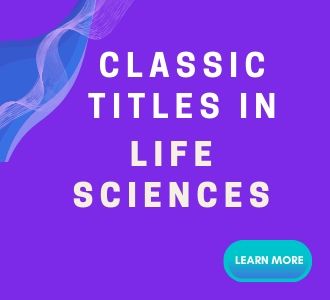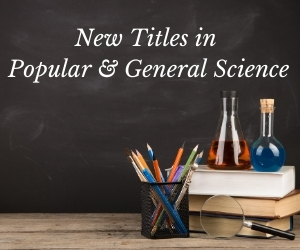Science and technology have made the modern world possible, but also created all the global problems that threaten our future: the climate crisis, the COVID-19 pandemic, mass extinction of species, environmental degradation, overpopulation, lethal modern war, and the menace of nuclear weapons. Nicholas Maxwell, world-renowned philosopher of science and author of 14 books, argues that all these problems have come about because humans have solved only the first of two great problems of learning — how to acquire scientific knowledge and technological know-how — but not the second — how to create a civilized, wise world.
The key disaster of our times is that we have science without wisdom. At present, universities all over the world are devoted to the pursuit of specialized knowledge and technology, or "knowledge-inquiry". Maxwell contends that they need to be radically transformed so that their basic function becomes to help humanity tackle global problems, with a more rigorous and socially beneficial perspective he calls "wisdom-inquiry". The World Crisis — And What to Do About It spells out in detail the changes that need to be made to academic inquiry, why they need to be made, and how they would enable universities to help humanity actively and effectively tackle and solve current global problems.
Related Link(s)
Sample Chapter(s)
Preface
1: The World Crisis
Contents:
- The World Crisis
- The Key to the Disasters of Our Time: Two Great Problems of Learning
- The Profound Enlightenment Idea and Its Bungled Implementation
- The Key to the Solution of the World Crisis We Face
- How Can Wisdom-Inquiry Help Us Solve the World Crisis?
- How Can We Create Wisdom-Inquiry?
- What Do We Need to Do to Solve the World Crisis?
Readership: Academics from a wide range of disciplines (philosophy and inquiry, pedagogy and education policies, global studies, environmental science, etc). Students (undergraduate and graduate). The general reader. Those concerned professionally with global problems, and with higher education.
"Maxwell is right on-target: Students learn about science in the absence of adequate preparation as to how to use well the knowledge they acquire to help address and hopefully solve the monumental problems facing the world today. Scientists have also often failed to fulfill their responsibility to create a better world by pretending that scientific knowledge can be learned and used acontextually. This book has extremely valuable ideas about how to reverse this ominous trend. It is a must-read — for me and everyone else!"
Robert J Sternberg
Professor of Human Development, Cornell University, USA
Fellow, American Association for the Advancement of Science
Fellow, American Psychological Association
Fellow, Association for Psychological Science
Fellow, American Educational Research Association
"Maxwell points out that the proper goal of inquiry should not be knowledge-acquisition. Acquiring knowledge cannot be an end in itself; it must be a means to obtain some end — and not asking about the nature of such an end is irrational. The ultimate purpose of inquiry, Maxwell holds, must be humanity's well-being. This book is of interest to all kinds of readers, even those with just a little background in Philosophy or History of Ideas. Maxwell's views are important: they should be known, examined seriously, and, if possible, implemented. They deserve as much dissemination as possible. Given the clarity and passion with which Maxwell usually writes, the reader will have no problem following and understanding the main points of the book. It is a robust piece of important work."
Agustín Vicente
Professor, Ikerbasque Foundation for Science, Spain
"For several decades Nicholas Maxwell has criticised the current approach to scientific research and university education, and promoted the exchange of the prevailing knowledge-inquiry for wisdom-inquiry. In the troubled times of fighting the COVID-19 virus it is more important than ever to assess and possibly rearrange the traditional academic practices in universities in order to address more efficiently the most acute problems humanity is facing. His many books on this topic have normally been addressed to an academic audience well versed in philosophy of science, thus a book that explains these thoughts to a wider readership is more than welcome."
Peeter Müürsepp
Professor, Department Chair, Vice-Dean, Tallinn University of Technology, Estonia
Chairperson, Estonian Association for the History and Philosophy of Science
President, Baltic Association for the History and Philosophy of Science
Editor-in-Chief, Acta Baltica Historiae et Philosophiae Scientiarum
Co-Editor-in-Chief, Baltic Journal for European Studies

Nicholas Maxwell is Emeritus Reader at University College London, UK, where he taught Philosophy of Science for nearly 30 years. He has devoted much of his working life to advocating that there is an urgent need to bring about a revolution in the aims and methods of academic inquiry, so that it seeks to promote wisdom rather than just acquire knowledge. In 2003 he founded Friends of Wisdom, an association of people sympathetic to the idea that academic inquiry should help humanity acquire more wisdom by rational means. He has also published on many diverse subjects such as the scientific method, the rationality of science, the philosophy of the natural and social sciences, the humanities, quantum theory, causation, the mind-body problem, aesthetics, and moral philosophy. He is the author of 15 books and over 100 papers in international peer-reviewed journals. He has discussed his work on BBC Radio 4 "Start the Week" and on Canadian Broadcasting Corporation's "Ideas" Programme, as well as lectured in universities and at conferences all over the UK, Europe, USA, and Canada. His books have been widely reviewed, and his work was prominently explored by twelve scholars in Science and the Pursuit of Wisdom: Studies in the Philosophy of Nicholas Maxwell.




